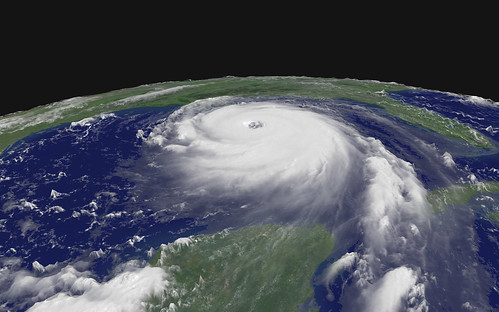The results come from a longitudinal study of 1079 families in Louisiana and Mississippi that were displaced or greatly affected by Hurricane Katrina. Most of the data analysed in this study came from parent interviews conducted 4-1/2 years after Katrina.
The study's findings demonstrate the dramatic, long-term impact of Hurricane Katrina on the children:
- Over 37% of the children have been clinically diagnosed with at least one mental health problem—depression, anxiety, or behavioral disorders
- 45% of parents report that their children are experiencing emotional or psychological problems that they hadn’t experienced prior to Katrina
- Children in the study are nearly 5 times more likely to have serious emotional disturbance compared to children who were not affected by the disaster
- Less than 50% of the parents that sought mental health counseling for their children were able to access services
Nearly two out of three children affected by Katrina continue to experience serious mental and behavioral problems or the stress of unstable housing or both, with children living in poverty over two times as susceptible to serious emotional disorders. We believe that this represents at least 20,000 children affected by Katrina—and perhaps considerably more. Immediate action needs to be taken to increase mental health services in the region.You can watch Dr. Redlener discuss the implications of this study with John Roberts on CNN: Trauma After Katrina: Children Still Suffering Emotionally.
This study provides one more argument to improve access to mental health services for children. As I've written before, most of the children across the country who need mental health evaluation and treatment don't receive them. This is largely due to a combination of factors: the availability of mental health professionals who specialize in treating children, inadequate health insurance, reluctance to seek help because of stigma, and the failure to recognize mental health problems in children.
We must do better. The long-term effects and cost of mental illness on children, their families, and society are too great.
Abramson, D. M., Park, Y. S., Stehling-Ariza, T., & Redlener, I. (2010). Children as Bellwethers of Recovery Disaster Medicine and Public Health Preparedness : 10.1001/dmp.2010.7

I'm a psychologist specializing in children and families. I've worked in the system and it has moved slowly to improve mental health access for children. What can we do in this case to improve access for children impacted by Katrina and elsewhere quickly?
ReplyDelete